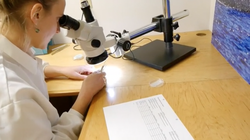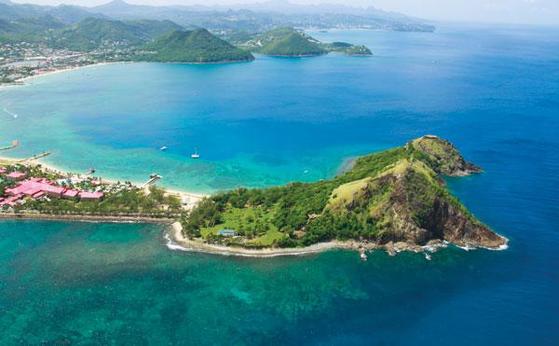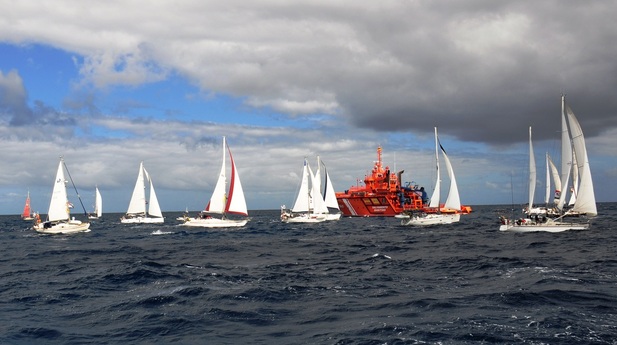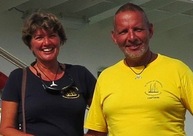Before the new year, crewmembers from 100 sailboats are set to collect 600 ocean water samples from a 602,000-square-nautical mile area in the Atlantic Ocean for ASC’s microplastics research.
“It’s huge for science, for really getting a picture of this part of the Atlantic,” said ASC partner scientist Abby Barrows. “[This will give] us the fuller picture of how plastic concentrations may or may not fluctuate closer to land and in the middle of the ocean.”
On November 9, the first wave of boats departed from Grand Canary Island, a Spanish province off the western coast of Africa. This group, the ARC+, is headed first for the Cape Verde Islands and then to Saint Lucia. Of the 51 boats, 28 are participating in the ASC project. Marjo and Edwin plan to recruit 72 additional boats of the 200 in the main ARC leaving Grand Canary on November 23 for St. Lucia.
 ASC partner scientist Abby Barrows analyzes ocean water samples for microplastics (ASC photo)
ASC partner scientist Abby Barrows analyzes ocean water samples for microplastics (ASC photo)
After arriving in December, the boats will disperse from St. Lucia worldwide, Marjo said—some through the Panama Canal to the Pacific, many to the Caribbean through the Azores and back to Europe, and others to South America.
“I’m really excited … that there is potential for sampling all over the world because of the connections they’ve made with these new adventurers,” Abby said.
ASC has provided Abby, an independent researcher, with samples from places including Scandinavia, the Antarctic Peninsula, the Falkland Islands, South Georgia Island and West Africa—places she describes as “undersampled and understudied.”
“What I was seeing from almost all these samples is there’s plastic everywhere—there’s a lot of plastic everywhere.”
The Ocean Conservation crew isn’t done yet. In mid-November, they will present at the Marine Biodiversity Week in Las Palmas to locals and other yachtsmen and -women about ASC’s microplastics research.
“One of the things we throw overboard is an agenda,” Marjo said. “There’s only the weather that determines when or where we will go. We work really intuitively”
With requests from conservation organizations in Suriname, Haiti, Sri Lanka and Columbia, there’s no doubt Ocean Conservation will continue to do valuable work. Here at ASC, we hope to continue building on this exciting partnership.



